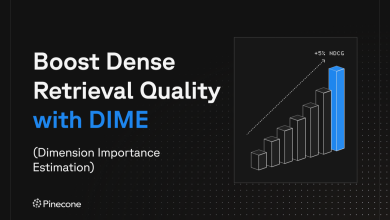
For too long, shift work — the backbone of industries like hospitality, retail, and healthcare — has been defined by unpredictability. Around 80% of the world’s workforce relies on hourly work to make a living, yet outdated processes, rigid scheduling methods, and gaps in communication have often held back businesses and workers alike.
Today, AI is reshaping what’s possible, not by replacing people, but by making work better, more predictable, more productive, and more human.
Managing a shift-based workforce has always been complex. Businesses must meet customer demand, comply with constantly changing employment laws, and balance employee needs — all while controlling costs. Traditional approaches simply can’t keep up. Even when labour laws like the UK’s Employment Rights Bill provide critical protections for workers, businesses still need smarter tools to meet these obligations operationally.
That’s where AI is beginning to change the game.
Smarter Scheduling for a Smarter Future
In shift work, AI is unlocking new possibilities by helping businesses better match staffing to actual demand, without the complexity or guesswork.
Intelligent scheduling tools can now analyse historical data, forecast demand patterns, and generate optimised rosters that align operational needs with employee preferences and legal requirements. Managers aren’t left relying on intuition or manually adjusting schedules — they have real-time recommendations built on meaningful insights.
Take the hospitality industry. Restaurants, for example, can forecast customer traffic based on historical trends, seasonal events, or even weather forecasts. Staffing levels can then be fine-tuned to meet expected demand, ensuring businesses aren’t overstaffed during quiet periods or stretched thin during peak hours.
It’s a win-win: businesses control costs, employees have fairer, more predictable shifts, and customers experience better service.
Importantly, AI doesn’t mean removing human oversight. Technology should enable managers to make better decisions, not take decisions away from them. Building transparency and flexibility into the process remains critical for trust and fairness.
Streamlining Hiring and Onboarding
Hiring and onboarding have long been pain points in industries with high turnover. Filling roles quickly — and getting new employees up to speed — can make or break a business’s ability to deliver on customer expectations.
AI is helping to streamline these processes. Candidate screening can be automated to highlight the best matches for open roles based on skills and qualifications, reducing the burden on hiring managers. Onboarding can be digitised, allowing new employees to complete required paperwork, access training materials, and begin contributing faster — all without drowning HR teams in manual administration.
Especially during peak periods like the holiday season, these efficiencies can be the difference between a business that thrives and one that struggles.
Strengthening Employee Engagement and Retention
Employee engagement and retention are critical challenges in shift-based industries. High turnover rates come with real costs — not just in recruiting and training, but in lost productivity and team disruption.
AI-driven feedback systems can help businesses monitor workforce sentiment in real time. Gathering quick insights after each shift allows managers to spot trends, identify emerging issues, and act early to improve the employee experience.
Personalised, transparent communication between managers and workers becomes easier and faster, strengthening trust and creating a more responsive workplace culture.
When employees feel heard and supported, morale improves, loyalty increases, and businesses build reputations as employers of choice, giving them a powerful edge in a competitive labour market.
Looking Ahead
The AI revolution in shift work isn’t about replacing workers — it’s about better supporting them, and helping businesses run smarter, fairer, and more efficiently.
By automating complex processes, improving hiring speed, enhancing onboarding, and strengthening employee engagement, AI is opening a new chapter for the world of shift work.
The future will belong to businesses that embrace these changes — building workplaces where operational excellence and employee wellbeing go hand in hand.



